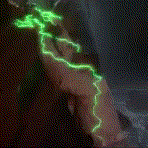|
ulmont posted:This is of course the natural implication of an omniscient God. Not necessarily. God knowing how things will turn out is not the same as God willfully making things happen that way.
|
|
|
|

|
| # ? Apr 25, 2024 00:08 |
|
ulmont posted:This is of course the natural implication of an omniscient God. This depends on your tradition. I read this wonderful critique of Calvinism from an Orthodox perspective. Foreknowledge doesn't necessarily require forewilling. If I'm remembering what I read right. Also Calvin neglected to read other church fathers. Edit: Heh, beaten.
|
|
|
|
The predestination stuff got me thinking in the shower, so here's a question in general: Can God change the past? God is generally held to be in a sense external to time as we experience it, so it should all be the same to Him, but the question may also be meaningless if "past" and "future" are merely projections of the intellect and not actual realities. In this case it would be like "can God create a whole number between 4 and 5," to which I imagine the answer is more "that's not a meaningful ask" rather than "No, you have found God's weakness."
|
|
|
|
|
Deteriorata posted:Not necessarily. God knowing how things will turn out is not the same as God willfully making things happen that way. I have seen this response before, and I find it unconvincing in the context of a sufficiently powerful God. The critiques of Calvin from the standpoint of Total Depravity, Limited Atonement, Irrestible grace, and Preservation of the elect (TLIP of the "TULIP"), I appreciated, and thank you for the link. I agree that they could generally be excised from Calvinism with no great loss. With regard to Unconditional election, however, I do agree with Karl Barth's characterization (paraphrased in your link) of Calvin's insistence in God's absolute sovereignty underpinning double predestination and double predestination merely a logical consequence thereof, and I find the critique unconvincing.
|
|
|
|
Nessus posted:The predestination stuff got me thinking in the shower, so here's a question in general: Can God change the past? William Lane Craig has written on the philosophy and theology of relativity. I haven't read it and have no idea if it's any good. One of these days I'll have to fix that. Certainly it's interesting that God seems to have made a universe where simultaneity is not a fixed property of events.
|
|
|
|
ulmont posted:I have seen this response before, and I find it unconvincing in the context of a sufficiently powerful God. I can know how a movie ends without being the one who made the movie. You find it unconvincing because you choose to be unconvinced. You have the power, but not the will.
|
|
|
|
ulmont posted:merely a logical consequence thereof, and I find the critique unconvincing. You know more about this topic than I do. I haven't read Barth. I reject Calvinism because of its obsession with logical consequence. It's all if A, then B. And yet I am a finite being, trying to reason from the finite, how specifically the infinite Mover perceives and interacts with reality. An impossible task! Better in my opinion to hold the paradox in faith.
|
|
|
Deteriorata posted:I can know how a movie ends without being the one who made the movie. Thinking about this recurrent thread in theology, I believe you can actually connect it pretty directly to developments in the perception of justice; essentially, there is an increasingly widely perceived responsibility of care. This may well be a genuine cultural shift not directly connected to theology.
|
|
|
|
|
Nessus posted:I think the practical difference here is that God did in fact create the movie, if at a remove (by creating the people who created the movie). He created the conditions for the movie to be made, but how involved He is beyond that is a matter for debate. I'm afraid the metaphor is just going to get more tortured the more we try to tease it out, but Deteriorata's initial point is I think a sound one since free will means that man is the director of his own film. God knows what we will do because he has the vantage point of eternity but we choose what we're going to do.
|
|
|
White Coke posted:He created the conditions for the movie to be made, but how involved He is beyond that is a matter for debate. I'm afraid the metaphor is just going to get more tortured the more we try to tease it out, but Deteriorata's initial point is I think a sound one since free will means that man is the director of his own film. God knows what we will do because he has the vantage point of eternity but we choose what we're going to do. If it is wrong to apply these standards to the infinitely good, should those standards be applied to humans? e: Like to give an illustration, in general we hold people responsible (rhetorically, if not literally) for the second-order effects of their actions, especially when these involve people of less reason. If I created some kind of situation where a child has to go through a maze and be injured by things I have set up, and those injuries are predictable and inevitable, what the hell is wrong with me? Why would you even do that? And how much greater the gulf between us and God, as between a child and an adult!
|
|
|
|
|
When we talk about God as Christians we are also taking about humans, because of Jesus. From the Humanity of God: “We do not need to engage in a free-ranging investigation to seek out and construct who and what God truly is, and who and what man truly is, but only to read the truth about both where it resides, namely, in the fullness of their togetherness” So when we talk about omnipotence or predestination we are doing that, engaging in that construction and ignoring that God was human and we don’t have to construct him. But “Man cannot be man without thought. He must think even if he is the most primitive devotional Christian, with no theological education or understanding. Even in religion we give names to special objects. We distinguish acts of the Divine. We relate symbols to each other. We explain their meaning. There is language in every religion, and the existence of language means that there are universals, and of universals that there are concepts, and of concepts that one must think, even on the most primitive level.” Because that’s what we do because we use language. Between those two views there to me lies how to understand the error. omnipotence, predestination, etc, these are only our symbolic constructions to talk about God, our thinking about God. God was human and that’s what was real. But we’ve got to talk about that to communicate, so we have to make constructions, but we know that they are only our constructions with our limitations and that we are also talking about ourselves.
|
|
|
|
Nessus posted:The predestination stuff got me thinking in the shower, so here's a question in general: Can God change the past? ulmont posted:I have seen this response before, and I find it unconvincing in the context of a sufficiently powerful God. I'd say God is inherently outside of causality, if you believe in omnipotence. Of course then we're right back to the Problem of Evil.
|
|
|
|
Liquid Communism posted:I'd say God is inherently outside of causality, if you believe in omnipotence. One answer to the Problem of Evil that I've read is that evil isn't anything in itself, but defined as an absence of good. If you accept such a definition of evil then God created it in so much as he created a universe where the absence of good is possible, but he didn't really create it since it doesn't exist. It seems a little like kicking the can down the road to me, but I haven't read that much about the Problem of Evil yet.
|
|
|
|
Yeah, it reads as kicking the can down the road to me as well. I don't personally find it a very compelling argument, given the existence of evil that occurs to those who are blameless, such as children abused by clergy (moral evil), or afflicted with crippling degenerative disorders (natural evil). Active evils can't easily be defined in the terns if absences of good.
|
|
|
|
Deteriorata posted:Not necessarily. God knowing how things will turn out is not the same as God willfully making things happen that way. This is exactly the case in norse heathenry. Odin sacrifices himself (to himself), to learn the secret of everything, which unfortunately (or however you want to look at it) includes the secret of the end of the world, which he is powerless to stop or affect, even as it meanst his own death. Liquid Communism posted:Yeah, it reads as kicking the can down the road to me as well. I don't personally find it a very compelling argument, given the existence of evil that occurs to those who are blameless, such as children abused by clergy (moral evil), or afflicted with crippling degenerative disorders (natural evil). Not really on topic, but this is my atheist partners reply to most arguments of benevolent spiritual action: "What about the starving kids who have their eyes eaten by blowflies? Yeah, thought so."
|
|
|
|
Tias posted:This is exactly the case in norse heathenry. Odin sacrifices himself (to himself), to learn the secret of everything, which unfortunately (or however you want to look at it) includes the secret of the end of the world, which he is powerless to stop or affect, even as it meanst his own death. Yes but Odin is only omniscient, neither omnipotent nor omnibenevolent. Liquid Communism posted:Of course then we're right back to the Problem of Evil. Well yes. Evil is inconsistent with a triple Omni God but slots in well with a 2-0 Omni god. Not all of the possibilities result in deities worthy of worship, of course.
|
|
|
|
Liquid Communism posted:Yeah, it reads as kicking the can down the road to me as well. I don't personally find it a very compelling argument, given the existence of evil that occurs to those who are blameless, such as children abused by clergy (moral evil), or afflicted with crippling degenerative disorders (natural evil). In the case of moral evils that's the result of human action, so to prevent them from happening is to infringe upon free will. Natural evils being evil raises the question of whether something can be evil without free will. People don't think like supervillains and cackle about how evil they are when they do bad things, but a degenerative disorder is just doing what it does while people have choices they make. If something has no choice in what it does can it be evil, or good? Tias posted:Not really on topic, but this is my atheist partners reply to most arguments of benevolent spiritual action: "What about the starving kids who have their eyes eaten by blowflies? Yeah, thought so." Is she saying the blowflies are evil, or that God not stopping them is evil? Because while I can see the issues with the idea that evil is merely an absence of good, I think there is some value to it raising the question of whether evil is just a human label for things versus some kind of absolute moral principle beyond human definition.
|
|
|
|
White Coke posted:In the case of moral evils that's the result of human action, so to prevent them from happening is to infringe upon free will. Natural evils being evil raises the question of whether something can be evil without free will. People don't think like supervillains and cackle about how evil they are when they do bad things, but a degenerative disorder is just doing what it does while people have choices they make. If something has no choice in what it does can it be evil, or good? Given that an omnipotent god could have, without effort, designed a world without a random chance that some children are born to die a slow and cruel death for no reason, I'd say it can absolutely be evil. Free will goes into another discussion, as it hits on the same points of question as predestination. If an omniscient god knows upon creation who will die in sin and who will be saved (as he must, being omniscient), then what free will can actually exist?
|
|
|
|
Liquid Communism posted:Given that an omnipotent god could have, without effort, designed a world without a random chance that some children are born to die a slow and cruel death for no reason, I'd say it can absolutely be evil. The answer is that that is allowed to exist for an important reason. God could build a world without that, but he didn't. Why would that be? The easy reason would be to call God evil. A more sophisticated reason would be that God knows it's really important that we as humans learn to love each other and care for each other. If no bad things can ever happen to other people, then we don't have to care about them and we remain moral infants. Why our moral development is so important to God is a much more interesting question to me.
|
|
|
|
I think in addition to the "three omnis," you have to add the factor of "God created the universe and everything in it," whether you interpret that literally or in a more metaphorical sense that everything was put in motion by some singular "Let there be Light," etc.
|
|
|
|
|
Deteriorata posted:The answer is that that is allowed to exist for an important reason. God could build a world without that, but he didn't. Why would that be? I think it is, as mentioned above, a pretty solid reason to consider that an omnipotent, omniscient, and omnibenevolent creator is not congruent with the observed universe we live in. An omnipotent and omniscient creator can foresee the results of his creation without needing to actually bring it into existence, and as he sets the parameters of existence has no constraint to create imperfectly unless he desires to do so. I don't think that's a good argument against the existence of God, but I do think it's a good argument that either he lacks the power or knowledge to create perfectly, or restrains himself from doing so. Any two of the three 'Omnis' fit the observable universe better than all three, to my reasoning. Or, of course, that our limited human perception of God is faulty, and the concept of damnation is a thing humans made up to force other humans into social compliance.
|
|
|
|
Deteriorata posted:The answer is that that is allowed to exist for an important reason. God could build a world without that, but he didn't. Why would that be? What do you think the answer is? Or rather, what're the ones you feel come closest to answering the question? I think the Problem of Evil is an important issue to address, but it isn't something that has to be completely settled before other questions can be addressed. It might even be that in answering other questions we answer it too.
|
|
|
|
Liquid Communism posted:An omnipotent and omniscient creator can foresee the results of his creation without needing to actually bring it into existence, and as he sets the parameters of existence has no constraint to create imperfectly unless he desires to do so. This doesn't strike me as at all obvious. Men are created in his image, with what amounts to some of his power. I'm not sure why it should be logically feasible to create a universe with no possibility of evil and still have anything resembling persons with moral agency, creative ability, and an ability to relate to him. Not to be too Panglossian, but a human understanding of "omnibenevolent" that excludes all evil from first principles might well require deleting universe.exe shortly after the bang. From a very explicitly Christian perspective of course, he clearly cared enough about the project to show up in person and promptly get tortured to death in order to give the rest of us life.
|
|
|
|
The omnis point they are not what they point to.
|
|
|
|
If these have been addressed in a previous thread iteration (it's hard to keep track after a few years), I apologize but, I have a couple of questions for the thread: 1) What is the difference between heresy and heterodoxy? I have a vague concept that it's the difference between having an idea and spreading an idea. I don't know how true that is. 2) What is the holy spirit? I'll admit that I have a hard time with this one, though that may just be me coming from a non-trinitarian position. The Father as creator makes sense and, The Son as Jesus I get. The Holy Spirit though, I've never really been able to wrap my mind around that.
|
|
|
|
ulmont posted:This is of course the natural implication of an omniscient God. lmao fly away troll
|
|
|
|
it is seriously funny to me that edgelord anti religionists are so completely unread that they cannot conceive of any religious framework other than far-right white American evangelicalism. like do you know how hard everyone else itt is laughing at u bro
|
|
|
|
They still think in the same way as the evangelical places they left. Different specific beliefs after leaving but the same way s of thinking about the world.
|
|
|
|
ulmont posted:Yes but Odin is only omniscient, neither omnipotent nor omnibenevolent. Odin is definitely omnipotent. Not sure where you'd get that claim from. White Coke posted:Is she saying the blowflies are evil, or that God not stopping them is evil? Because while I can see the issues with the idea that evil is merely an absence of good, I think there is some value to it raising the question of whether evil is just a human label for things versus some kind of absolute moral principle beyond human definition. God either not stopping it, or not designing a world without it, seems extremely pointless for a good God and/or universe.
|
|
|
|
https://twitter.com/arthur_affect/status/1357853414202347522 Which of Jesus' parables is this? I'm not Christian, so any parable knowledge I have is thru osmosis (or similar stories in Muslim context) like the camel thru needle, or the sermon of the mount. Apologies if this question is really basic. I tried to google phrases combining "jesus christ" with words like "public servant" or "political capital" and ended up nowhere. Thank you.
|
|
|
|
toanoradian posted:https://twitter.com/arthur_affect/status/1357853414202347522 If it's about burying anything in the ground to keep it safe, it's the parable about the talents. I'll need a sec to find it.
|
|
|
|
https://en.m.wikipedia.org/wiki/Parable_of_the_talents_or_minas This seems to be a good overview that discusses how it appears in the new testament. Also, a tax collector makes an appearance (not in the parable itself but in the surrounding story): https://en.m.wikipedia.org/wiki/Zacchaeus
|
|
|
|
I did an effortpost back in the thread* about what I believe about why the world is the way that it is and why that isn't incompatible with a benevolent God. The short version I guess is that - God didn't *create* say, earthquakes. They're a natural physical consequence of how the planet is built. It might be that a tectonically active planet is necessary for life to exist at all and you get earthquakes as a result of that. That sort of thing. I mean I doubt we're going to solve The Problem Of Evil in this thread when people have fretted on it for millennia. But for me at least, that's part of faith. Not accepting that bad things happen and that's All God's Plan and so we shouldn't fix it. But accepting that bad things happen because of the nature of humanity's free will, or the nature of the planet, or how our biology sometimes goes wonky, and God's plan is that we *should* try to fix it. I don't know why that's God's plan, but I believe in a God of love and compassion, so I trust him. That's where faith is. You can't reason your way to an omnipotent, omnibenevolent, omniscient God in the world we have. *e: it was in the old thread sorry, it wasn't super insightful anyway, I ain't no expert
|
|
|
|
This is a great, and necessary, discussion to have. A major part of my faith is that it's not evil for God to let disease, disasters etc happen/exist. I agree with Hopper that often it's a natural consequence of how our planet works. Rather, the real issue is that humans allow other people to suffer as a result. We choose to create and uphold unjust societies that can't adequately deal with poverty, global warming, and so on. I wish God would inspire us all to create a Star Trek-like utopia, but I don't blame him. It doesn't feel right to hold God accountable for human actions.
|
|
|
|
Tias posted:
The best answer I ever heard was this one: Blowflies may serve a vital role in the eco system. Could God tweak that eco system so blowflies are no longer necessary? Of course. But that would mean something else needing to fit that role. What if the new animal is WORSE than the blowflies? Sometimes God lets horrible things happen, because he knows that if said horror didn't happen, something even worse WOULD happen. But we will never get the truth of why something happened this side of the grave.
|
|
|
|
toanoradian posted:
He is sarcastically comparing the position of Democrats on the federal level (Biden/Congress) to the position of one of the characters in Jesus' parable known as the "parable of the talents". A note before we begin: a "talent" back in those days could refer to a unit of weight or money, here it refers to money. In the parable, a man gathers three of his servants and tells them he is going on a journey, and that he is entrusting his property to them while he is away. Each one receives some talents, and the point of the story hinges on what they do with it. One servant invests it and gets a good return, and the second puts it in the bank and earns a little interest, but the third one gets nervous and buries the money in the ground. Then the man comes back and checks in with his servants. He praises the first two, because they had been good stewards of the gift/opportunity that they had been given, but he gets super mad at the third one because the guy didn't take the opportunity to do anything with the money. To tie this in to the twitter man's post, I think he did a pretty straightforward and good application of the parable to the thing he's talking about. His point is to contrast the idea he disagrees with of "political capital is a finite resource and you can spend it now or save some to spend later" with the idea he agrees with of "perhaps political capital works like capital and you can invest it". The parable of the talents is a pretty good way to think about this comparison. Two of the interpretations of this parable that I think are relevant here are A) being mindful of the gifts we have been given in our life and trying to use them for good purposes, and B) to not let our fear of something that may happen get in the way of us using an opportunity that we have in the here and now.
|
|
|
|
The teaching I was given about the Problem of Evil was that God created a perfect world without blowflies eating eyes or any other mishap, but that he gave human beings free will, because creatures without free will could not truly love or appreciate anything, simply execute a pre-built program. Then, however, Man committed sin, and in so doing ruined the perfect world created. The destruction and unfortunate outcomes caused by nature are a side effect of that sin throwing the whole world out of balance - a balance that cannot return outside of the new creation in the far side of the grave. It’s a touch facile, but it’s held up for me so far.
|
|
|
|
Tias posted:Odin is definitely omnipotent. Not sure where you'd get that claim from. But he can't prevent Ragnarok or otherwise change his fate. Tias posted:God either not stopping it, or not designing a world without it, seems extremely pointless for a good God and/or universe. God is omnibenevolent but the universe isn't, so bad things happening in a good place doesn't make it pure evil.
|
|
|
Tias posted:Odin is definitely omnipotent. Not sure where you'd get that claim from. quote:God either not stopping it, or not designing a world without it, seems extremely pointless for a good God and/or universe.
|
|
|
|
|

|
| # ? Apr 25, 2024 00:08 |
|
Things are. “for in Him we live, and move, and are;” A creator is a being. Personally I’m strongly in favor of understanding the Father as Being-itself. That there is an “is” rather than some start of a casual chain.
|
|
|

































